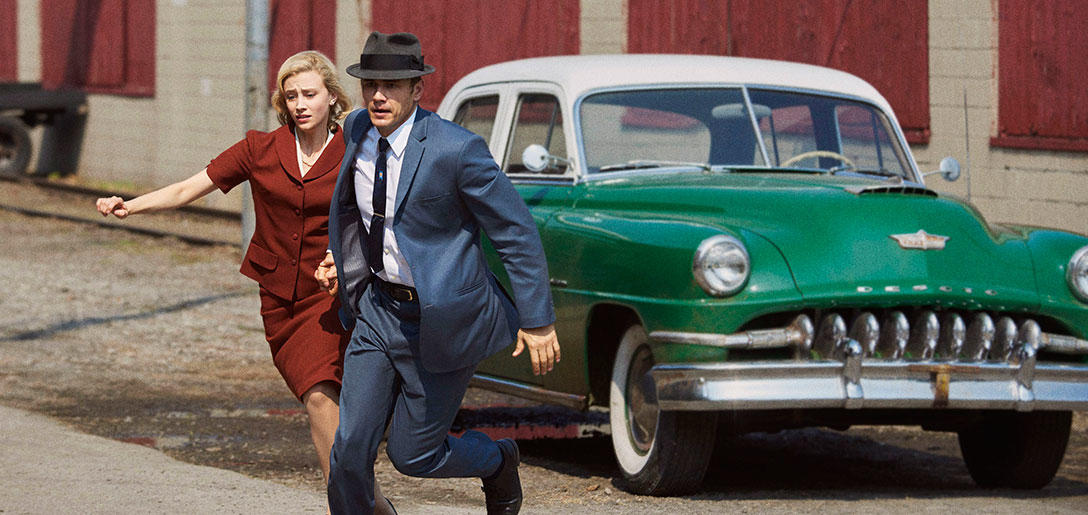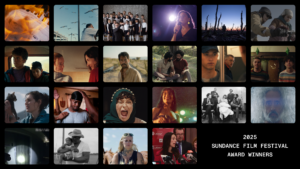Sundance Institute
Sundance.org is dispatching its writers to daily screenings and events to capture the 10 days of festivities during the 2016 Sundance Film Festival in Park City, Utah. Check back each morning for roundups and insights into our experiences throughout the Festival.
Tickled
By Eric Hynes
You’d think that a film called Tickled would offer a light, escapist, mirthful time at the theater. But while this World Documentary Competition feature is often very funny, and starts off as an uproarious investigation into an obscure and frankly amusing fetish, it quickly veers into very darker territory. Provoked by insulting and homophobic responses to requests for an interview, New Zealand directors David Farrier and Dylan Reeve press deeper into a surprisingly disturbing subculture, led by several shady organizations perhaps run by the same mysterious person. The filmmakers travel to the U.S. in pursuit of these organizations, and along the way interview young men throughout the country who’d been recruited to perform in fetish videos and then were viciously harassed when they attempted to stop participating.

The discomfiting developments on screen were improbably matched by a discomfited presence within the rows of the Library Theater last night. An associate of the aforementioned mysterious ringleader (no spoilers), who’s briefly but memorably featured in the film, was both spotted and heard toward the back of the room, scrawling furiously onto rustled papers, loudly snapping a clipboard, and exhaling angrily throughout. It made for a truly surreal, oddly but intensely stressful screening experience for those within the vicinity.
During the post-screening Q&A, when Farrier was asked if any people that were interviewed in the film have seen the movie, the buzzing group that sat near the agitated, and by-then absent subject, interjected in unison to say, “Yes!”
“I heard rumors of this, and that’s why I’m a bit shaky,” Farrier said. “So what did he say?”
“He said to say hi to you,” the audience member said.
Farrier speculated that, after relative silence after the first screenings of the film at the Festival, he’d be hearing from the litigious mystery man. That aspect of the story is actually explored in the film itself, with the directors revealing throughout that they’ve been targeted and threatened for trying to pursue this story. (Let’s again take a moment to acknowledge that this is all happening around a film called Tickled, regarding people who like to tickle and be tickled.) “Just protecting ourselves legally was a mission,” Farrier said. They let their Kickstarter campaign go quiet and “pretended the storm wasn’t happening anymore.” Now that they’ve gone public with the film, Farrier said his hope was that the FBI and other authorities would pay closer attention to what’s been happening, including allegations of fraud, harassment, and blackmail.
With this in mind, Farrier was asked why he wasn’t more aggressive during a brief but intense streetside encounter with the Tickle King (which Farrier said was the working title). “I was kind of having a mild panic attack at the time,” he said. “For a New Zealander especially, America is scary. It was a very sane conversation, but I didn’t know what he was going to do. People have guns in America,” he said, archly, but considering the mood in the room it also felt apt. “Instead I just went with this weird, deadpan hello. I genuinely thought, in the back of my brain, that I could somehow charm him. I was even thinking I might be able to sit down and chat with him in a formal interview.” Needless to say that doesn’t happen in the film.
Yet even after all this, someone from the audience still wasn’t sure if Farrier was trying to put one over on everyone. “I have to ask this to make myself feel better: really? Did this really happen?” a man asked, and was answered with cathartic laughter. “We did some test screenings for some New Zealand audiences, and a few of the people leaving thought it was a mockumentary,” Farrier said. “And that’s the best possible response I could imagine. I still struggle with this, but it’s completely real.”
Before leaving, Farrier again reversed the Q&A dynamic, and asked after the man who wasn’t exactly hiding his presence or dissatisfaction during the screening. “How many notes did he take, how many pages?”
“Loads.”
“He kept flipping and flipping.”
“He took timecode the whole time.”
“Was he recording audio?” Farrier asked.
“No.”
“Ah,” Farrier said, offering the ideal kicker. “I’m so glad you got to meet someone from the film.”
11.22.63
By Jeremy Kinser
James Franco stars as a high school English teacher who time-travels back to the early 1960s to prevent the assassination of President Kennedy in a compelling adaptation of Stephen King’s bestselling thriller 11/22/63. The first episode premiered as a special events presentation at the Egyptian Theatre Thursday and will begin airing in nine weekly installments on Hulu beginning, appropriately, on President’s Day, February 15.
The series was executive produced by J.J. Abrams and Bridget Carpenter, who were in attendance. Carpenter joked that Franco was unable to make it to Park City because, “he’s directing a movie he’s starring in, he’s making a commercial, writing a third book of poetry and a novel, and he’s curing Hep C. He sends his regrets.”

During the Q&A that followed the premiere, Abrams spoke about how the project came together, revealing he’d been a huge fan of the book. “[King] took all these disparate elements, many of which were tropes, and put them together in a way I’d never seen,” he said.
Abrams added that at one point Jonathan Demme had tried to turn the dense novel (it’s more than 800 pages) into a compact two-hour film. “I let [King] know I was a fan of the book and about a year or so later he sent an email and asked if I wanted to be involved in getting it to the screen,” Abrams shared. “Because the book was as big as it was, it felt like a miniseries was the way to go and Stephen said he agreed.”
Carpenter, best known for her work on the award-winning TV drama Friday Night Lights, was also a fan of the book and said that it was thrilling to work with King, who had approval over every element of the production. “He read every outline and script and watched every cut and he loved it, I’m happy to say,” she said. Carpenter explained that she wants viewers to be subsumed in the story visually and dramatically. “The idea of time travel is in some small way the ‘MacGuffin.’” It begins the story, which is about a man who wants to make a difference and this is the way he thinks he’s going to do something important by traveling in time to save the president.”
Adams agreed, chiming in with, “There’s ‘a be careful what you wish for’ element to the novel. I think the intention to do good and do something with your life. The literal idea of preventing the assassination of Kennedy ends up being a catalyst for that bigger story.”
Addressing the idea that we’re living in a “Golden Age” of television, Abrams suggested it’s because many of the stories being told on the small screen could never get made as feature films. “Obviously, festivals like Sundance get to present and spotlight the kinds of movies in many cases we wish were being made by the major studios,” he said. “Any opportunity for a studio to tell a story and get it out in the world is a good thing.”
The relatively new concept of binge-watching television series was raised and audiences members expressed their disappointment that 11/22/63 will play out over nine weeks. Abrams noted there seems to be an entitlement that people should have all these episodes available for viewing at once. “I think that’s probably unhealthy for some marriages,” he cracked. “To preserve marriages, we decided to do this on a weekly basis.”
Carpenter, who confessed to being a lifelong fan of the horror writer, teased other King fans in the audience to be on the lookout for a number of Easter eggs in the production. “There is something to be found in every hour of this series,” she said, adding, “I’ll give one away. When Jake [Franco’s character] goes back to the past, we pass a Blue Ribbon Laundry and that’s the laundry where Carrie White’s mother worked in Carrie. I’ll also say pay special attention to the car that T.R. Knight’s character drives. It’s red, it’s a Fury…it’s Christine. For real.”
Becoming Mike Nichols
By Jeremy Kinser
Becoming Mike Nichols chronicles the journey of a young boy who escaped Nazi Germany with his family before the outbreak of WWII to becoming one of the indisputably great stage and screen directors of his generation. The non-fiction film, directed by Douglas McGrath, premiered Thursday at the Egyptian Theatre ahead of its broadcast premiere on HBO today.
The thoroughly engaging film, which explores Nichols unique creative process, is essentially a two-hander. Just months before Nichols’ death at age 83 in 2014, McGrath spent several days recording conversations between the director and his close friend and fellow stage director, Jack O’Brien. McGrath adds rich context to the discussion between the two men with beautifully-restored archival footage of Nichols’ fabled comic partnership with Elaine May and at work on his early stage hits, such as Barefoot in the Park, which helped launch Sundance Institute founder Robert Redford to fame. Also included are rare behind-the-scenes photos of the director at work as he led actors like Elizabeth Taylor and Dustin Hoffman to some of their most acclaimed turns before the camera.

Despite O’Brien having asked questions about the extent of Nichols’ incredible career which included numerous other Broadway successes and hit films, McGrath ends his story after Nichols’ huge success with The Graduate, which besides winning him a best director Oscar, was a huge hit at the box office and became a seminal touchstone for the counter culture of the 1960s.
McGrath told the audience that the way Nichols answered queries about his post-Graduate work was very interesting. “He told me that he thought most directors do their best work early and he thought he’d done his best work early,” he informed. “He thought his best work was The Graduate. In a way, what happens when you’re as gifted as Mike, the interesting thing is becoming that person. Learning things and acquiring the skills, the ruling out of things. When you reach that achievement — and The Graduate is a supreme level of cinematic and literary achievement — then after that, although he did many great things… you could see he wasn’t as excited to talk about the rest.”
He also shared that he believed it was Nichols’ challenging childhood as a refugee that provided him with such uncanny insight into humanity. “He had no visual signature as an artist,” McGrath stated. “All of his films and plays are linked not only by his intelligence and his wonderful and very flattering faith in the audience that if he got the joke, they’d get the joke. He always treated the audience as if they were as smart as he was. Having met him and having been in the audience, I can assure you that’s not true. He never made the audience feel that way. He always made the audience feel like, ‘Oh, we’re so smart.’”
Unfortunately, the subject never got to see this film. Rich told the audience that he’d received a rough cut late one evening and had planned to show it to Nichols the following morning. “I opened up my laptop the next morning and learned he died,” Rich added. It’s impossible to conceive that Nichols, with his love of great characters, wouldn’t have appreciated the one on display in this tribute.




